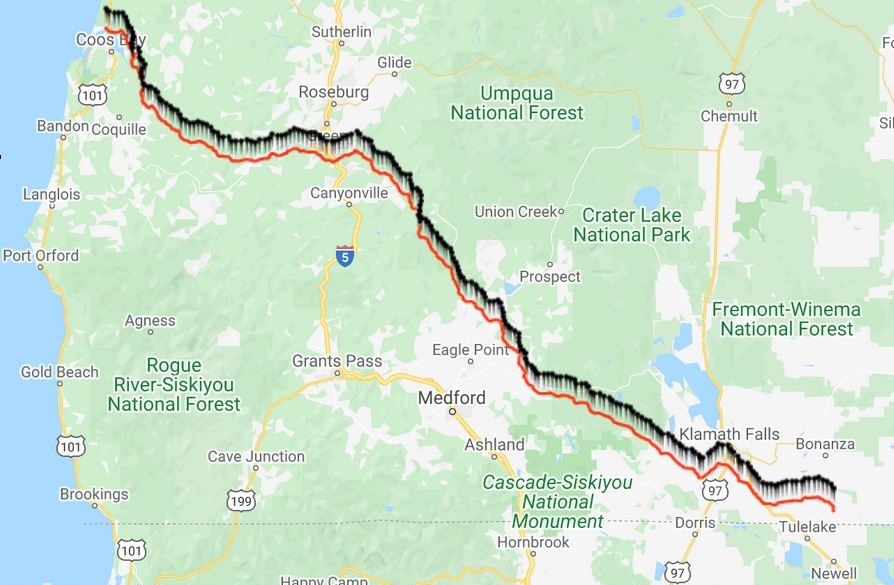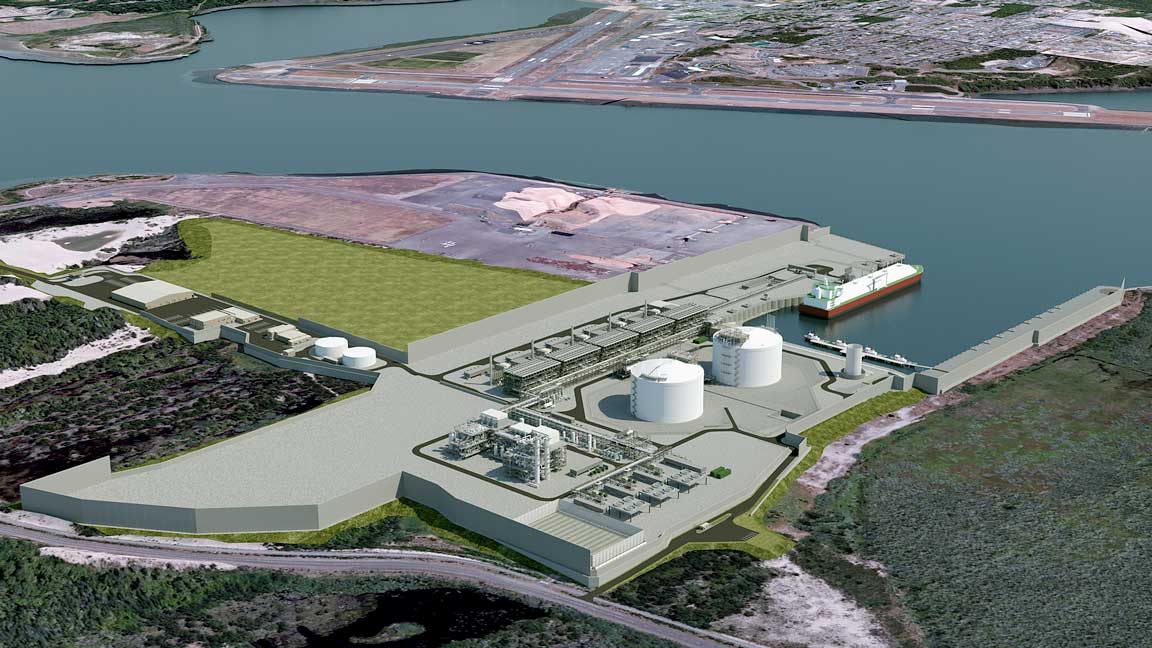FERC Weighs Plan to Build Pacific Connector Pipeline in Oregon
SALEM, Ore. (AP) — Thursday was the day that a federal agency had been expected to make a decision on a proposed natural gas pipeline and marine export terminal in Oregon, and both opponents of the project and the Canadian energy company behind it awaited word from Washington.

But Thursday came and went, and the Federal Energy Regulatory Commission, or FERC, only announced that the mega-project would be part of a crowded agenda when it meets on Feb. 20. If the commission approves the project, which lacks state permits, it would likely set up a court battle over state's rights.
State Sen. Jeff Golden, a Democrat and former river guide, insisted recently that Oregon law cannot be preempted by the federal government.
Oregon Gov. Kate Brown, also Democrat, said through a spokeswoman last month that she "would consider all available options to safeguard the health and environment of Oregon” if the federal government were to ignore state permitting processes. The Trump administration in August proposed streamlining approval of gas pipelines and other energy projects by limiting states’ certification authorities under the U.S. Clean Water Act.
The proposed natural gas terminal and a 230-mile (370-kilometer) Pacific Connector pipeline would permit shipment of natural gas from the United States and Canada to Asia and would be the West Coast's first liquefied natural gas export terminal.
The proposed Pacific Connector would be a 36-inch diameter pipeline designed to transport natural gas from interconnections with the Ruby Pipeline and the Gas Transmission Northwest (GTN) Pipeline near Malin, Oregon, to the LNG Terminal in Coos County, Oregon.
The Oregon Department of Environmental Quality has already denied a water quality certification for the Jordan Cove natural gas export project proposed by Pembina, the Canadian energy company. Pembina withdrew its application for a different state permit and said that it awaits a final determination by the federal commission. Its three current members were all appointed by President Donald Trump.
Paul Vogel, a spokesman for the Jordan Cove project, had been anticipating a decision by FERC on Thursday, but noted it has a busy schedule.
FERC spokeswoman Mary O'Driscoll said the commission is still considering records in the case.
“The Commission will meet on Feb. 20. The item is on the agenda. That’s all I can say,” O'Driscoll said in an email.
Supporters of the project say it would create local jobs. Opponents say it would ruin habitat and that the increased use of fossil fuel would contribute to global warming.
U.S. Senator Ron Wyden, D-Oregon, on Jan. 27 wrote to President Donald Trump, noting the Federal Energy Regulatory Commission had two vacancies. Wyden urged the president to appoint a full and bipartisan five-member commission before the agency rules on the project.
He said failure to do so would mean any decision could be interpreted as lacking full, fair consideration and therefore being politically motivated.
P&G staff contributed to this report.
Related News
Related News

- Keystone Oil Pipeline Resumes Operations After Temporary Shutdown
- Freeport LNG Plant Runs Near Zero Consumption for Fifth Day
- Biden Administration Buys Oil for Emergency Reserve Above Target Price
- Mexico Seizes Air Liquide's Hydrogen Plant at Pemex Refinery
- Enbridge to Invest $500 Million in Pipeline Assets, Including Expansion of 850-Mile Gray Oak Pipeline
- Enbridge Receives Approval to Begin Service on Louisiana Venice Gas Pipeline Project
- U.S. to Acquire 3 Million Barrels of Oil for Emergency Reserve in September
- AG&P LNG Acquires 49% Stake in Vietnam's Cai Mep LNG Terminal
- BP's Carbon Emissions Increase in 2023, Ending Decline Since 2019
- Texas Sues EPA Over Methane Emission Rules for Oil and Gas Sector





Comments